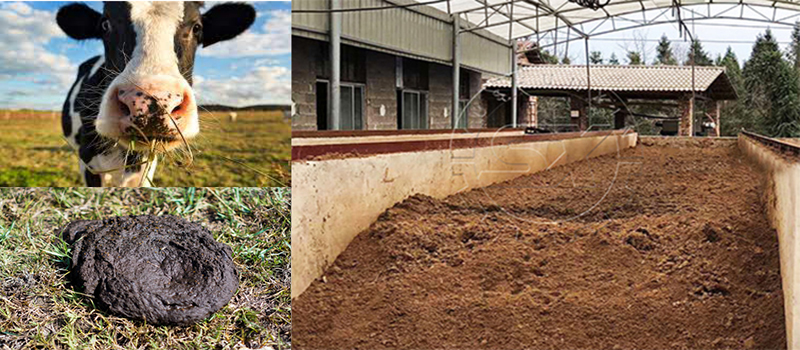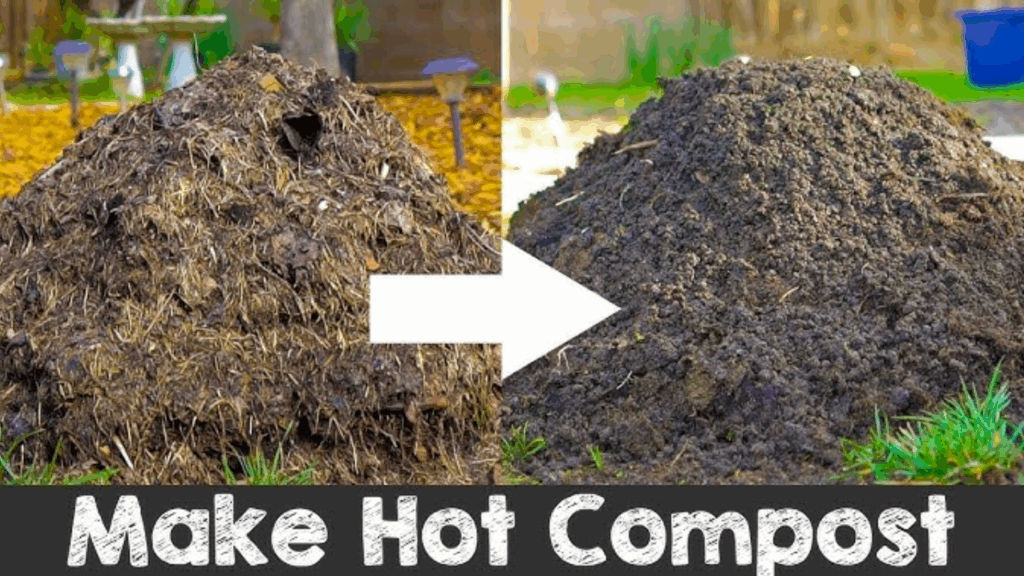Introduction
In a world where sustainable agriculture is gaining momentum, managing organic waste has become essential. Animal manure, often seen as mere waste, can be transformed into a valuable soil amendment through fermentation. This age-old practice not only recycles waste but also enriches the soil with essential nutrients for plants.
Fermenting manure is a natural method that promotes the breakdown of organic matter, eliminates pathogens, and improves soil structure. In Algeria, especially in Constantine, this technique can be particularly beneficial for gardeners eager to protect the environment while optimizing their soil fertility.
Part 1: Why Ferment Manure?
1.1 The Risks of Unfermented Manure
Applying fresh manure directly can pose several risks for gardeners:
- Root burn: Fresh manure contains high ammonia levels that can damage plant roots.
- Disease spread: Some pathogens present in untreated manure can contaminate the soil and crops.
- Unbalanced plant growth: Rapid nutrient release can cause excessive foliage growth at the expense of roots and fruits.
1.2 Benefits of Fermentation
Fermenting manure provides several advantages:
- Nutrient stabilization: Nutrients become more available to plants.
- Improved soil structure: Composting enriches soil with organic matter, enhancing water retention and aeration.
- Pathogen reduction: Heat generated during fermentation kills many harmful germs.
- Weed seed reduction: Fermentation destroys unwanted seeds present in the manure.
Part 2: How to Ferment Manure Properly?
2.1 Choosing the Right Manure
Not all manures are equal. Examples include:

- Horse manure: Fiber-rich, ideal for improving soil texture.
- Cow manure: Nutritionally balanced, suitable for a wide range of crops.
- Poultry manure: Highly concentrated, must be used carefully and often diluted.
2.2 Preparing the Manure Pile
For optimal fermentation:
- Location: Choose a well-ventilated spot, sheltered from wind and rain.
- Size: The pile should be approximately 1.5 meters wide and 1 meter high.
- Mixing: Incorporate carbon-rich materials (straw, dead leaves) to balance the carbon/nitrogen ratio.
2.3 Maintaining the Pile
To ensure proper decomposition:
- Aeration: Turn the pile every 2 to 3 weeks to introduce oxygen.
- Moisture: Keep it moist but not soggy, like a wrung-out sponge.
- Temperature: Internal temperature should reach between 55°C and 65°C to eliminate pathogens.
2.4 Using Fermented Manure
Once fermentation is complete:
- Incorporation: Mix the compost into soil before planting.
- Mulching: Use it on the surface to retain moisture and limit weeds.
- Liquid fertilizer: Dilute in water to feed plants during growth phases.
Part 3: Precautions and Tips
3.1 Common Mistakes to Avoid
- Using manure that is too fresh can burn plants and introduce pathogens.
- Lack of aeration may cause anaerobic fermentation, resulting in foul odors.
- Incorrect carbon/nitrogen ratio (too much nitrogen) can slow decomposition.
3.2 Practical Advice
- Diversify materials: Mix different types of manure for balanced nutrients.
- Monitor temperature: Use a compost thermometer to track heat development.
- Be patient: Allow enough time for fermentation to produce quality compost.
Part 4: Advantages of Manure Fermentation
4.1 For Gardeners
- Cost savings: Reduces the need to buy chemical fertilizers.
- Self-sufficiency: Produces homemade soil amendments.
- Satisfaction: Turns waste into valuable resource.
4.2 For the Environment
- Waste reduction: Less manure sent to landfills.
- Resource preservation: Reduces reliance on chemical products.
- Biodiversity enhancement: Supports beneficial soil microorganisms.
Part 5: Tools and Equipment Needed
- Pitchfork or shovel for turning the pile.
- Compost thermometer to monitor temperature.
- Gardening gloves for safe handling.
- Tarp or plastic sheet to cover the pile and retain heat.
Part 6: Frequently Asked Questions
6.1 How long does manure take to ferment?
The process can last from 2 to 3 months depending on climate and pile management.
6.2 Can fresh horse manure be used?
It is best to let it ferment first to avoid risks to plants.
6.3 How much manure is needed for a 100 m² garden?
About 2 to 3 tons of mature compost are sufficient to enrich the soil.
Conclusion
Fermenting animal manure is a simple, economical, and ecological method to improve soil quality and promote healthy plant growth. By following the described steps and precautions, every gardener can transform waste into a precious resource for their garden.
Feel free to share your experiences and tips in the comments and spread this article to fellow gardeners!
Recommended External Links:


amoxicillin medication – amoxicillin price cheap amoxil pill
diflucan 200mg us – buy fluconazole 200mg generic order fluconazole 200mg without prescription
buy cenforce tablets – https://cenforcers.com/ buy cenforce 50mg
cialis after prostate surgery – ciltad gn what does generic cialis look like
cialis manufacturer coupon – site san antonio cialis doctor
buy generic zantac 300mg – https://aranitidine.com/# ranitidine 150mg pill
how to buy cheap viagra online – site 100 mg viagra pills
With thanks. Loads of conception! cenforce para que sirve
This is the amicable of glad I enjoy reading. buy amoxil sale
This is the kind of enter I find helpful. https://ursxdol.com/sildenafil-50-mg-in/
More posts like this would make the online elbow-room more useful. https://prohnrg.com/product/loratadine-10-mg-tablets/
This is the kind of content I enjoy reading. https://aranitidine.com/fr/en_ligne_kamagra/
This is a theme which is near to my verve… Numberless thanks! Faithfully where can I upon the contact details for questions? https://ondactone.com/spironolactone/
This is the make of post I find helpful.
order sumatriptan generic
More articles like this would remedy the blogosphere richer. http://www.fujiapuerbbs.com/home.php?mod=space&uid=3618580
dapagliflozin online order – this purchase dapagliflozin generic
buy xenical – https://asacostat.com/# xenical 120mg oral
The sagacity in this tune is exceptional. http://anja.pf-control.de/Musik-Wellness/member.php?action=profile&uid=4733
You can conserve yourself and your ancestors by way of being wary when buying prescription online. Some pharmacopoeia websites manipulate legally and provide convenience, reclusion, sell for savings and safeguards for purchasing medicines. buy in TerbinaPharmacy https://terbinafines.com/product/lopressor.html lopressor
More posts like this would force the blogosphere more useful. TerbinaPharmacy
I couldn’t resist commenting. Warmly written!
https://t.me/dragon_money_mani/14
mgm online casino login betmgm FL mgmbet login
Awaken senses with vibrant visuals and soundscapes. In crown coin casino official site, sensory-rich games captivate. Sense the thrill and seize the prizes!
Sweet Bonanza is pure sugar-fueled excitement from Pragmatic Play. Pay-anywhere sweet bonanza sugar rush wins and free spins with multipliers await. Jump in now!
Power up your play with authentic Wild West vibes. buffalo diamond brings non-stop thrills via wild herds, multiplier frenzy, and colossal payouts. Your turn to shine!